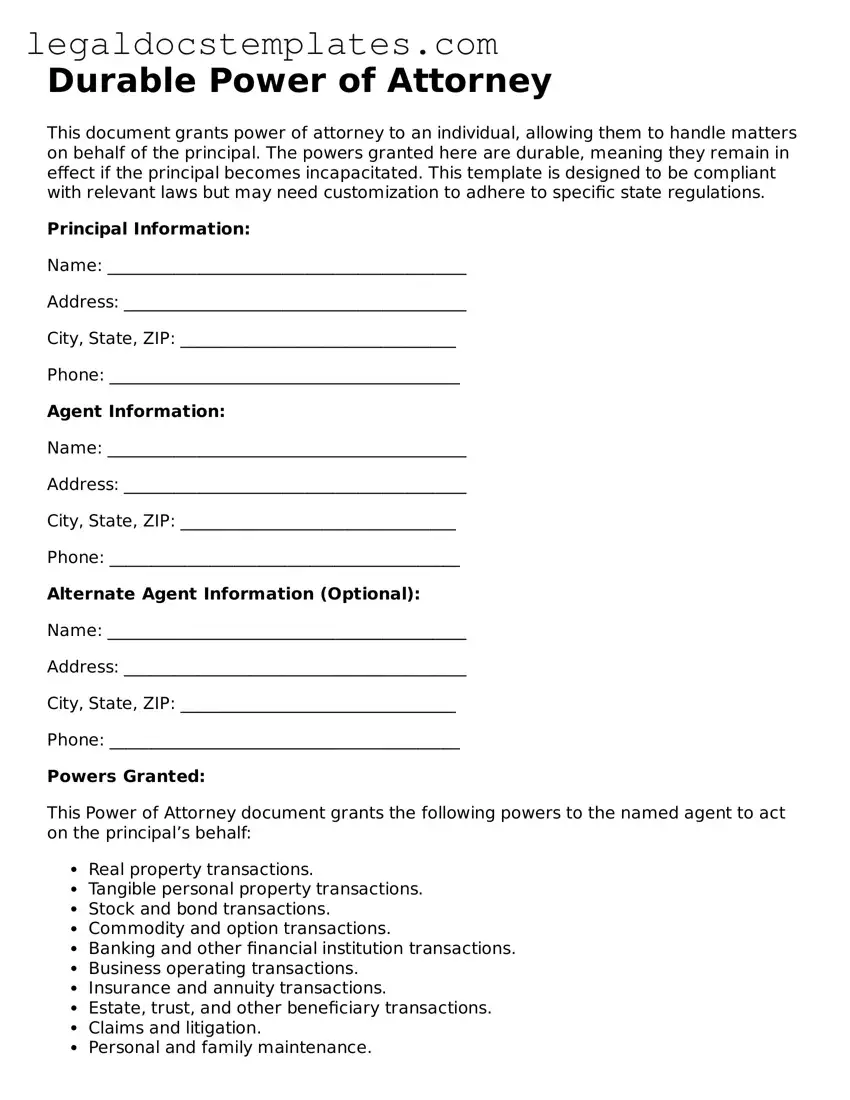Printable Durable Power of Attorney Template
A Durable Power of Attorney form is a legal document that enables you to appoint someone you trust to manage your financial affairs and make decisions on your behalf, especially in situations where you're unable to do so due to illness or incapacity. This powerful tool ensures that your matters are handled according to your wishes without the need for court intervention. If you're looking to secure your financial future, click the button below to fill out the form.
Access Durable Power of Attorney Now

Printable Durable Power of Attorney Template
Access Durable Power of Attorney Now

Access Durable Power of Attorney Now
or
⇩ PDF Form
Don’t spend hours on this form
Complete Durable Power of Attorney online in minutes, fully digital.